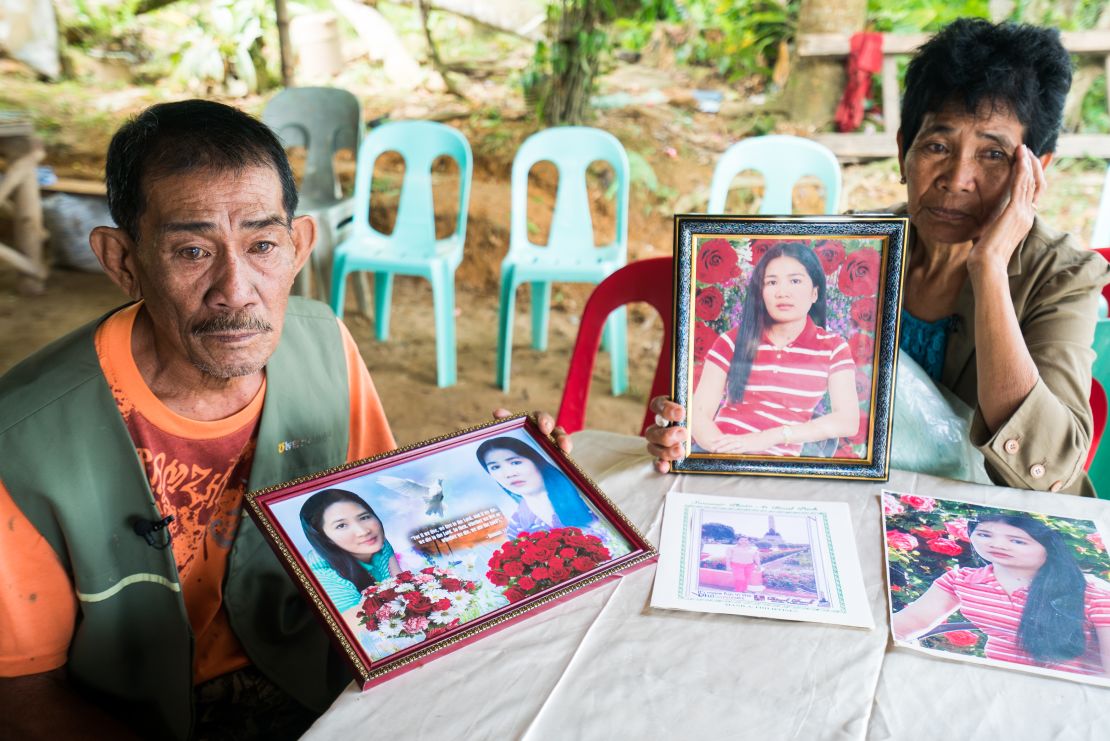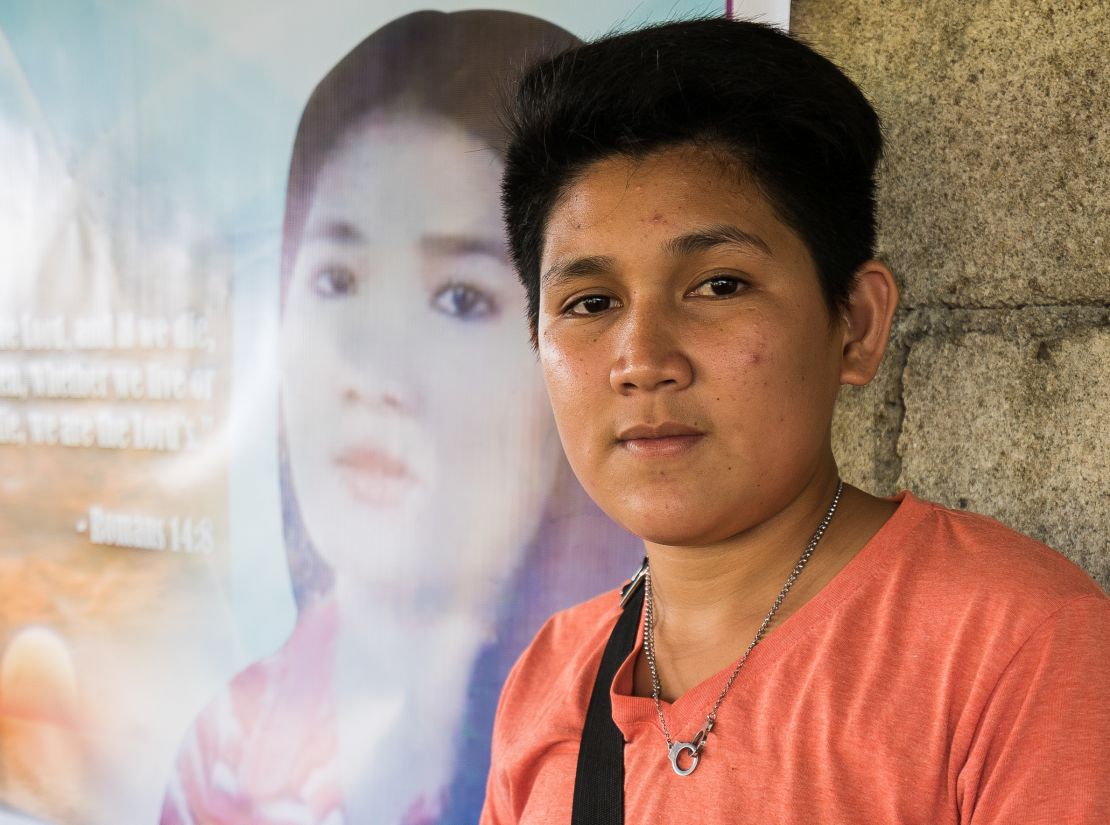Joanna Demafelis’s body arrived home from Kuwait in a coffin Friday, four years after she left the Philippines to work as a maid, and days after her corpse was found stuffed in a freezer, allegedly by her employers.
Joanna’s sister Jessica sobbed as she clutched the casket soon after it arrived in the Philippines capital Manila, a devastating end to months of uncertainty over the fate of the 29-year-old domestic worker.
The discovery of Demafelis’ body last week led to a fiery outburst from Philippines President Rodrigo Duterte, who vowed to “sell his soul to the devil” to bring home workers who were being abused in Kuwait.

Of more than 250,000 Filipinos in the Gulf country, at least 60% are domestic workers who live and work in the homes of their employers for more money than they can earn at home.
In the small town of Sara, on the Philippines island of Panay, Demafelis’ mother Eva told CNN Joanna was determined to leave to earn money for her family.
“I told my daughter, don’t leave. She said, ‘No mom, so I can give you a better future,” Eva Demafelis said.
One of nine children, Joanna was determined to find a job that would help lift the family out of poverty. Her wages in Kuwait would be enough, she thought, to put her younger sister through criminology school and help her parents get by.

The family suffered a devastating blow when Typhoon Haiyan tore through the Philippines in 2013, destroying their home and flattening the rice fields they had already pawned.
From his half-built house, Joanna’s father can see the rice fields they had hoped to buy back. With tears in his eyes, he says he had never stopped putting food on table and never wanted his daughter to go so far away.
“I told her, why do you need to leave for Kuwait, we have enough to eat,” Crisanto Demafelis said.
The last phone call home
Joanna finished high school but there were few job prospects in Sara. At 16, she moved to Manila to work as a maid. When other women told her she could earn more money overseas, she convinced her family she should go.
During her first year in Kuwait in 2014, Joanna sent them money every three months. Then nothing. Her family assumed she was saving her wages.
In 2016, she called home for the last time.
Joanna insisted everything was fine, but her younger sister Joyce suspects the call was being monitored. “I had a feeling that her employer was near her and there were limits on our phone conversation,” she said.
The call lasted just seven minutes.
“Just study hard, finish school so we can help mama and papa,” Joyce said Joanna told her.

The sisters had promised each other they wouldn’t get married or start their own families until their parents had rebuilt their house and bought back the rice fields.
“The last thing she told me was, I love you bungso (youngest child),” Joyce says in a near whisper.
Officials in the Philippines say Demafelis’s employers, a Lebanese man and Syrian woman, both at large, are considered the prime suspects in her murder. Kuwaiti investigators believe the couple has left the country.
Diplomatic crisis
Thousands of Filipino workers are also leaving.
After Demafelis’ death and other instances of worker abuse, Duterte’s government has offered free flights home for the 10,900 or so Filipinos who have overstayed their visa, and ordered a ban on the further deployment of workers to Kuwait.
So far, more than 2,200 workers have been granted travel documents to leave under an amnesty struck between the two governments.

The opportunity to leave is one that Salma, 30, tells CNN she had to grab. She’s beaming when she arrives in Manila, though she says she hopes to return to Kuwait some day. Her salary there is enough to support her entire family in the Philippines, she says.
Salma, who didn’t want to reveal her surname, had been living in limbo after losing her legal status when she quit her job with an abusive employer whom she says overworked and underpaid her.
Other women CNN spoke to in Manila say they’ll never return.

“She bit me, slapped me,” Jollibee Bajo, 29, says of her former employer. She also claims her employer’s husband touched her inappropriately.
Michelle Godoy, 27, says she was treated like “an animal, without dignity.”
Both found work with other employers but the fear of being punished for overstaying their visas prevented them from returning home.
They say even if they dared to leave they couldn’t have afforded the airfare.
Both vow they’ll never return to Kuwait, but it’s not clear what their futures hold at home. Godoy has two children and a sister to support, and doesn’t know what kind of work she could find to keep the family afloat.
In Sara, the Demafelis family has built an altar for their daughter’s wake. Photos of her are assembled on a small table in the unfinished house she wanted to help them build.
The Philippines government is providing financial assistance to the family, but her parents still don’t what happened to their daughter in Kuwait and why she suffered such a gruesome fate.
All they know is what they want to happen now.
“The same thing that was done to our child has to be done to them. That should be their punishment; I hope it’s death,” her mother said.
CNN’s Kathy Quiano, Jinky Jorgio and Kara Alikpala contributed reporting in the Philippines. Hilary Whiteman edited in Hong Kong.



